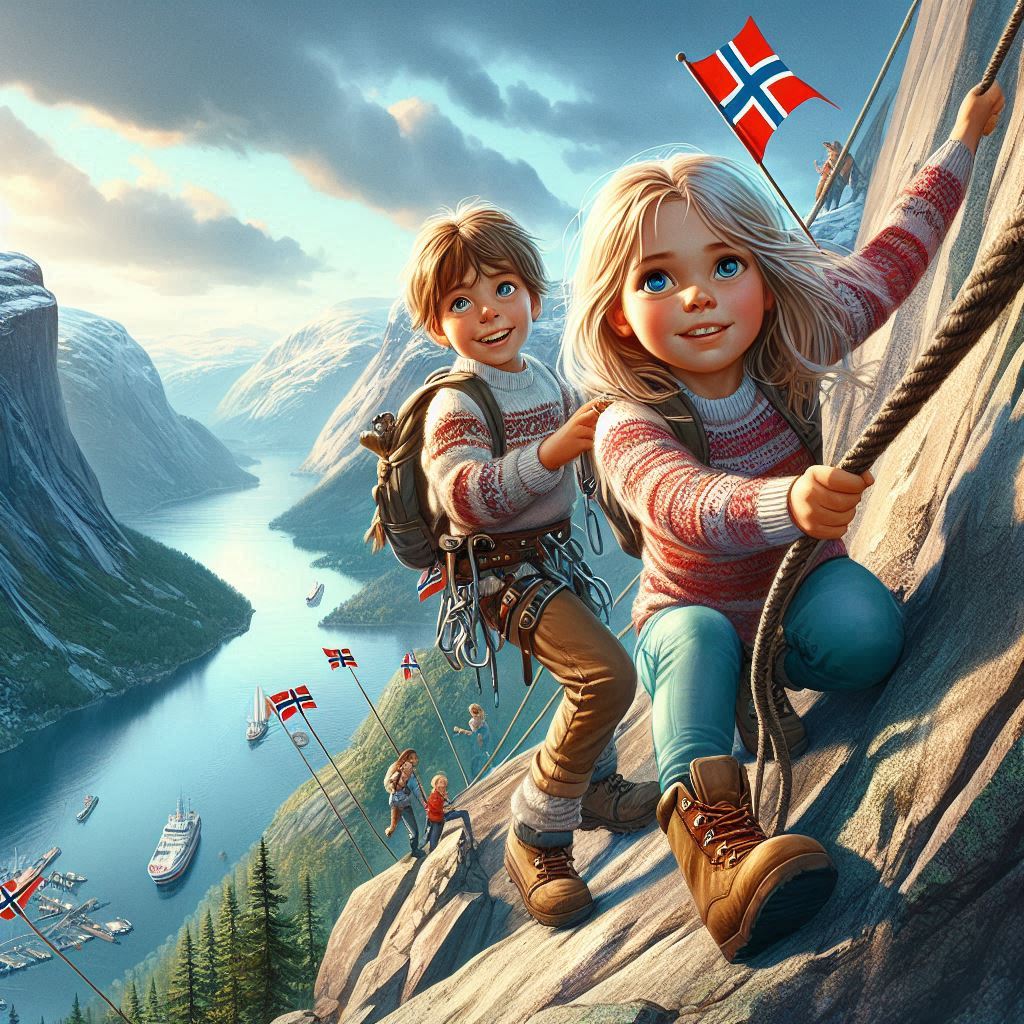Children as young as six in Norway often walk to school on their own and sometimes even travel across the country without a chaperone, experiences that are certainly rarely seen in other countries. This unique style of parenting emphasises independence, self-reliance, and resilience, allowing children to roam free and learn from their experiences with minimal supervision.
In Stavanger, a city on Norway's southwest coast, siblings Nila and Arion, aged 10 and 8, are perfect examples of this approach. After school, they return home, prepare their own food, and complete their homework or household chores. Their parents, who are still at work, trust them to manage their time and responsibilities. The only strict rule is to avoid screen time until their tasks are finished. This routine has been part of their lives since they were six, when they began walking to school alone and were given their own house keys.
This free-range style of parenting is deeply ingrained in Norwegian culture, where independence and self-sufficiency are highly valued. And it helps that Norway ranks seventh on the World Happiness Report and boasts one of the world's highest GDPs, the largest wealth fund, and one of the lowest crime rates. Practicality also plays some role in this parenting approach since the country has a high employment rate among women and affordable childcare is readily available to parents.
According to Mette Tveit, a curator and historian at Stavanger Museum, “In Norway, even young children will organise their social events and manage their spare time. They just get on with things. They are just trusted to make good decisions.” For them, failure is seen as a crucial part of children's development, allowing them to learn from their mistakes and grow more resilient.
Moreover, safety measures commonly found in homes elsewhere are often absent in Norway, reflecting a belief in allowing children to navigate risks on their own. This parenting style is heavily influenced by the teachings of psychologist Åse Gruda Skard, a prominent figure in Norway after WWII. Skard advocated for "free child-rearing" as a response to authoritarianism, encouraging parents to understand situations from their child’s perspective and support their learning and growth.
Hanne Myhre, a pedagogical leader in a kindergarten, mentions that even young children are encouraged to tackle obstacles, climb rocks, and walk on rough terrain. And that by the age of two, children are expected to dress themselves - with assistance if necessary - fostering early independence.
In summary, Norwegian parenting, with its focus on freedom, self-reliance, and learning from failure, creates an environment where children can grow into confident, capable adults.

Picture: A Norwegian girl and boy, 5-6 years old, climbing a steep cliff (Designer)



